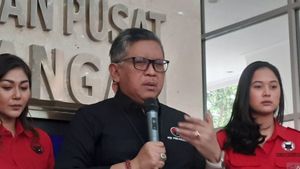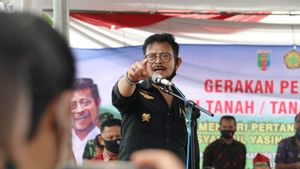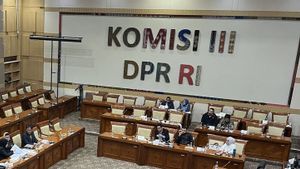JAKARTA - The DPR Plenary Session ratified the ASN Bill (RUU) into law. That way the regions are left behind, frontier and outermost (3T) will get the ease of mobility of ASN talent.
Minister of State Apparatus Empowerment and Bureaucratic Reform (PANRB) Abdullah Azwar Anas said the ASN Bill was dedicated to overcome the national talent gap, which has been uneven so far, because it is only concentrated on the island of Java.
"We have dedicated this convenience to overcome the talent gap, which is partly still centered in big cities," Anas said in a statement quoted by ANTARA, Tuesday, October 3.
The mobility of talents will be oriented 'Indonesia-Sentris' so that support for the existence of ASN, especially in 3T areas, will also support equitable national economic development.
Azwar explained that in previous years there were more than 130,000 ASN formations that were not fulfilled in the 3T area. This is because there is a lack of interest in ASN candidates to fill formations in these areas.
This law is a solution so that the 3T area also gets good service.
"One of them will be in PP, the government will prepare special incentives for ASN who work in 3T areas," he explained.
Anas added that one of the other crucial points in the ASN Bill is ASN recruitment which is transformed by referring to national development priorities.
So that when countries become several priority sectors, for example, food sovereignty, digitization, downstreaming, and anticipation of climate change as a national priority, ASN recruitment must be directed to agencies that are leading sectors related to this, as well as to areas that are accelerator centers for these sectors.
"Well, what has been in effect so far, the recruitment of ASN is only based on the determination of needs whose basis is the analysis of positions and analysis of workloads according to the current business process," said Anas.
In fact, at the same time the bureaucracy is simplifying the business process through digitalization. This causes the correlation between the number and type of position of ASN and what is a national priority to not be fully aligned.
اقرأ أيضا:
For this reason, the mobility of talents for ASN is tasked with outside government agencies such as the TNI/Polri and BUMN is also starting to open up to the official law. ASN can be encouraged to move between agencies for the development of its competencies.
So far, Anas explained, the requirement to mutate is very rigid, so there is a stigma that it is difficult to move an ASN.
"The mobility flexibility of this talent also clearly ensures that civil servants who are appointed as state officials, commissioners or members of non-structural institutions, as well as in assignments to world organizations, do not lose their employment rights while carrying out these tasks," said the former head of the Government Goods/Services Procurement Policy Institute (LKPP).
This new law also supports the acceleration of the development of ASN competencies. The development of competency is no longer interpreted as a right, but an obligation for ASN.
"For this reason, Government Agencies are obliged to provide easy access to learning for ASN employees," said the former Banyuwangi Regent.
The pattern of competency development is no longer classical, such as structuring, but prioritizes excellent learning, such as internships and on the job training.
"All of these concepts are part of efforts to improve ASN competence towards professional bureaucracy," concluded Anas.
The English, Chinese, Japanese, Arabic, and French versions are automatically generated by the AI. So there may still be inaccuracies in translating, please always see Indonesian as our main language. (system supported by DigitalSiber.id)



















